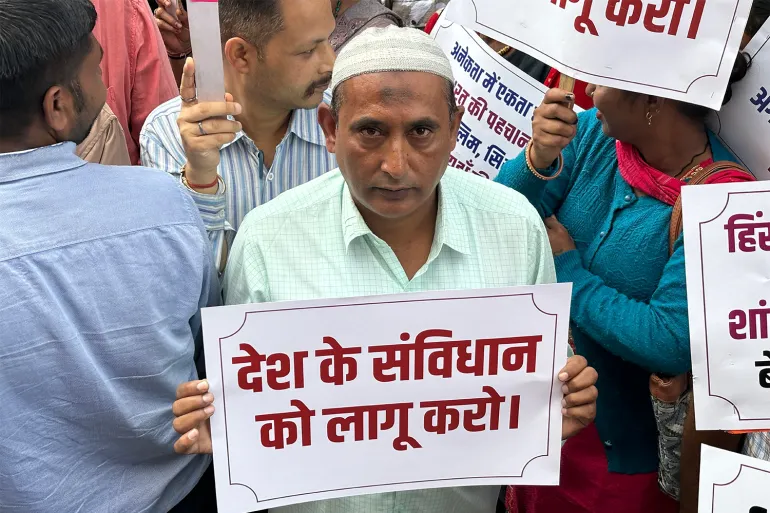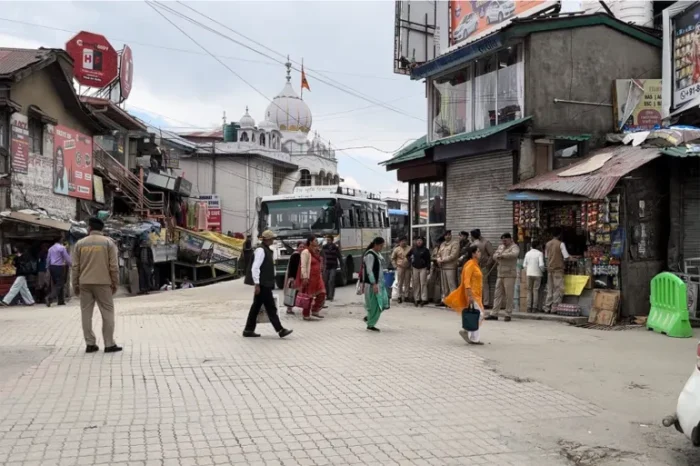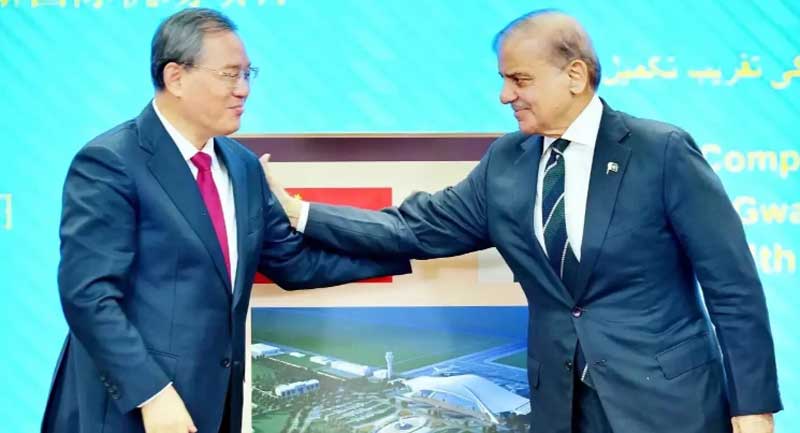Farhan Khan, a 26-year-old tailor in the quiet town of Solan, Himachal Pradesh, still feels shaken when he recalls the day an anti-Muslim rally swept through his community. On September 17, Farhan had just opened his shop when two men dressed in saffron clothing approached him, filming the encounter.
“They pointed their camera at me, hurling insults and demanding to know why my shop was open,” Farhan recounted. “Soon, a group joined them, becoming aggressive.” The mob then dragged him along, forcing him to point out other Muslim-owned businesses, which he reluctantly did.
Himachal Pradesh, a scenic northern Indian state popular with tourists, has been on edge for over a month following demands from far-right Hindu groups for the demolition of a mosque in Shimla. This demand soon spiraled into a broader anti-Muslim movement, calling for economic boycotts and even the expulsion of Muslims from the state.
Escalating Religious Tensions
According to The Hindu, tensions flared on August 31 after a dispute between a resident and laborers in the Shimla district escalated into communal unrest. On September 10, local Hindu groups, including the Vishwa Hindu Parishad (VHP), gathered outside a mosque in Sanjauli, demanding its demolition, alleging it was illegally constructed.
The VHP is part of a broader network of right-wing Hindu organizations led by the Rashtriya Swayamsevak Sangh (RSS), which advocates for transforming India into a Hindu state. The RSS also serves as the ideological backbone of Prime Minister Narendra Modi’s Bharatiya Janata Party (BJP).
While Himachal Pradesh’s Muslim population is only about 2 percent, the anti-Muslim protests quickly spread across the state. By September 11, more Hindu groups marched to Sanjauli, demanding the removal of “illegal” migrant workers and Muslim religious structures.
Growing Fear and Economic Struggles
Rallies erupted across Himachal Pradesh, with hate speeches urging the boycott of Muslim-owned businesses. Amid rising fear, many Muslim families fled. Farhan, originally from Uttar Pradesh, is among those who left. “My Hindu landlord was a good man, but he asked me to vacate due to pressure from these groups,” Farhan explained. “I locked myself in for two days before leaving for my hometown.”
In an alarming move, the Himachal Pradesh government mandated that restaurants and food stalls display the names of their employees, a decision critics argue is aimed at helping Hindus avoid eating food prepared by Muslims. Although the Congress-led state government quickly retracted the order, the damage had already been done.
Pamphlets bearing the phrase “Sanatani Vegetable Seller” began appearing in shops across Shimla. The term “Sanatan Dharm,” meaning “eternal religion,” is used by right-wing Hindus to describe Hinduism, signaling a growing religious divide.
Muslim Workers Face Discrimination
Muslim workers like Hamza, a house painter from West Bengal, are now facing open discrimination. “People are asking for our names to determine our religion before giving us work,” Hamza said. For 15 years, he had worked in Shimla without issues, but now he struggles to make ends meet. “I used to earn 600 rupees a day; now I’m barely making 300,” he lamented.
Former Shimla Deputy Mayor Tikender Panwar from the Communist Party of India-Marxist (CPM) believes the anti-Muslim sentiment is part of a larger, organized effort by right-wing groups to destabilize the state government and disrupt communal harmony. “This is not about illegal religious structures—it’s about inciting communal tensions,” Panwar said.
Mosque Demolition Fuels Tensions
On October 5, a Shimla Municipal Court ordered the demolition of three unauthorized floors of the Sanjauli mosque, giving the Waqf Board, which manages Muslim properties, two months to carry out the order. However, Muslim organizations are divided on the issue. While the All Himachal Muslim Organisation (AHMO) plans to challenge the ruling, the Sanjauli mosque committee has agreed to the demolition.
Meanwhile, members of right-wing groups like the Hindu Jagran Manch continue to push their agenda. Kamal Gautam, a former general secretary of the group, denied that the rallies were meant to create divisions. “These rallies raise awareness. If local Muslims feel threatened, they need to decide: are they with us or with the Muslim migrants?” Gautam told Al Jazeera, justifying the protests by accusing Muslim migrants of “radicalizing” the local Muslim population.
A Grim Outlook for the Future
Hamza, disheartened by the discrimination, said he is considering leaving the state for good. “If this hate continues, no one will offer us work. It’s painful to be seen as an outsider in my own country.”
Farhan Khan, now back in Uttar Pradesh, echoed similar sentiments. “This country belongs to me as much as anyone else, but it’s hard to see that now,” he said. “I don’t know when, or if, I’ll ever return to Himachal Pradesh.”
For long-time Shimla resident Mehfooz Malik, the sense of belonging has been completely shattered. “For 38 years, I’ve prayed at the Sanjauli mosque. Now, I’m afraid to even step inside. This city no longer feels like home,” he said. Malik plans to leave Shimla once his son finishes school next year. “Who would want to live in constant fear? Certainly not me.”
As Himachal Pradesh grapples with rising religious intolerance, the Muslim community is left questioning its future in a state they’ve long called home.
To Keep Updated Visit & Follow our Facebook Page Or Our Website





